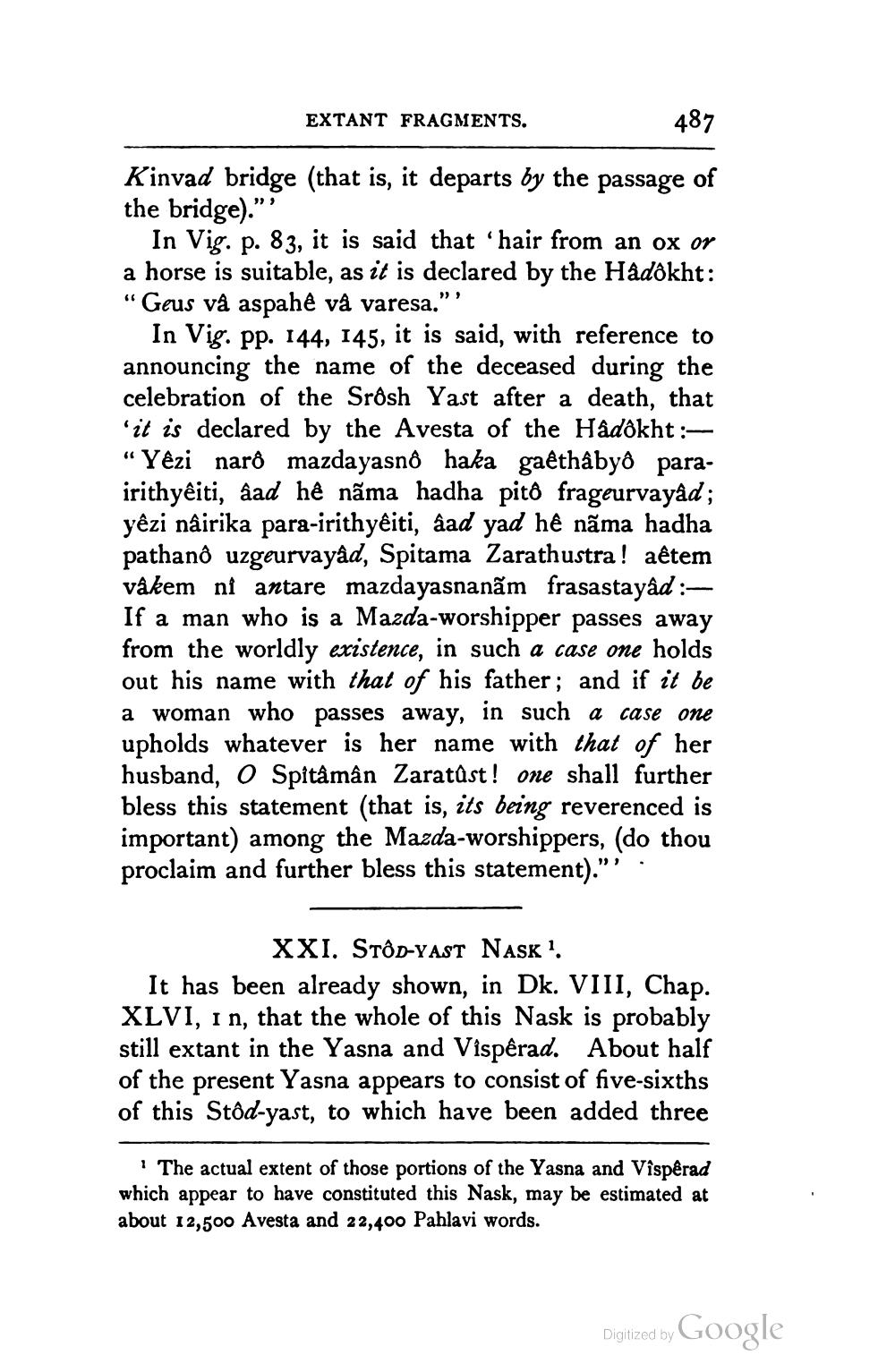________________
487
Kinvad bridge (that is, it departs by the passage of the bridge)."'
In Vig. p. 83, it is said that 'hair from an ox or a horse is suitable, as it is declared by the Hâdôkht: 'Geus vâ aspahê vâ varesa."
"""
66
In Vig. pp. 144, 145, it is said, with reference to announcing the name of the deceased during the celebration of the Srôsh Yast after a death, that 'it is declared by the Avesta of the Hâdôkht:"Yêzi narô mazdayasnô haka gaêthâbyô parairithyêiti, âad hê nama hadha pitô frageurvayâd; yêzi nâirika para-irithyêiti, âad yad hê nãma hadha pathanô uzgeurvayâd, Spitama Zarathustra! aêtem vâkem ni antare mazdayasnanam frasastayâd :—- If a man who is a Mazda-worshipper passes away from the worldly existence, in such a case one holds out his name with that of his father; and if it be a woman who passes away, in such a case one upholds whatever is her name with that of her husband, Spitâmân Zaratust! one shall further bless this statement (that is, its being reverenced is important) among the Mazda-worshippers, (do thou proclaim and further bless this statement)."'
EXTANT FRAGMENTS.
XXI. STÔD-YAST NASK1.
It has been already shown, in Dk. VIII, Chap. XLVI, In, that the whole of this Nask is probably still extant in the Yasna and Vispêrad. About half of the present Yasna appears to consist of five-sixths of this Stôd-yast, to which have been added three
'The actual extent of those portions of the Yasna and Vîspêrad which appear to have constituted this Nask, may be estimated at about 12,500 Avesta and 22,400 Pahlavi words.
Digitized by
Google




